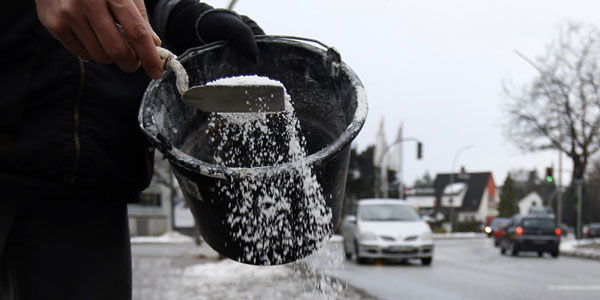 Kitty litter and salt are actually more harmful than the help they do to you to melt ice and snow. There are ways that are more eco-friendly to de-ice your driveway.
During January and February, the entire North America remains buried under mountains of snow and ice. The roads remain blocked and commuting for work, school, supplies, and many others become nightmares for most of us.
You might have already come across the idea of using salt or kitty litter to dig your way out of deep snow. While these household methods will come to your rescue sometimes, in most instances they will cause a number of troubles.
Kitty litter and salt are actually more harmful than the help they do to you to melt ice and snow. There are ways that are more eco-friendly to de-ice your driveway.
During January and February, the entire North America remains buried under mountains of snow and ice. The roads remain blocked and commuting for work, school, supplies, and many others become nightmares for most of us.
You might have already come across the idea of using salt or kitty litter to dig your way out of deep snow. While these household methods will come to your rescue sometimes, in most instances they will cause a number of troubles.
When wet, kitty litter can be slippery
If you do a little research, you’ll see that everyone from Consumer Reports to the Department of Transportation recommends keeping a bag of kitty litter in your van as it helps your van get traction when stuck in heavy snow. This method will help you while on the road. But, if you try to do it on your driveway, it’ll create problems. As per Fresh Step, cat litter can become slick when wet and difficult to remove from cement surfaces. Kitty litter is nothing but fancy clay and once the snow melts, you’ll end up with lumps of wet soil. Once hardened, they can be dangerous for your car.Salt can damage plants and harm pets
Salt is very useful in melting ice as it lowers the freezing point of water. It’s a very powerful and cost-effective way to melt ice and that’s why we use 22 million tons of it per year on roads across the U.S. However, there is a drawback. It's harmful to the environment when used commercially and in high concentration. And if you use it on your property, it can have harmful effects.Salt damages the soil and hampers plant growth
When the Romans sacked Carthage, the allegedly salted the earth so that nothing would grow. Though the authenticity of the claim is yet to be established, there is no doubt that salt is toxic to many plants. Once dissolved, sodium ions replace other nutrients in the soil that plants need to grow. Salt also dehydrates the plants by absorbing all the water.Salt can harm your pets
If you have pets, salt can irritate and burn their footpads. And, if they ingest it as you know it’s a common habit of pets to lick their paws, it can cause an upset stomach. If it devours huge amounts, the results can be dangerous. Though there are many alternative and eco-friendly ways to de-ice, salt and kitty litter are preferred as while kitty litter can be easier to have on hand, salt is easily available and cheap. So, if you go on using these, you need to make sure they neither mix with the soil nor your pets.Blog Category